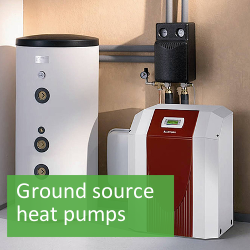RHI update August 2017
In March this year, the Government published a draft amendment to the Domestic Renewable Heat Incentive (RHI) Regulations. The amendment proposes an increase in the tariff for both air source and ground source heat pumps, with air source heat pumps proposed to be 10.18p/kWh (up from 7.63p) and ground source 19.86p/kWh (up from 19.64p). The increase for air source heat pumps is particularly significant, returning over 33% more on tariff payments. Any heat pump systems installed from December 2016 will be paid the RHI at these new, increased tariffs as soon as they are implemented.
Also in the Government’s draft amendment is a proposal to set a limit on the annual heat demand against which the RHI can be claimed. The heat demand limits would be set at 20,000kWh for ASHPs, and 30,000kWh for GSHPs. This will not affect the vast majority of households, with the average annual demand of UK homes being significantly less than 20,000kWh at around 12.000kWh (www.ovoenergy.com). Due to the snap General election in May and the ongoing Brexit negotiations the draft proposals have not yet been implemented, though will likely be after parliament reconvenes after the summer recess. So, for people with larger homes thinking of installing a heat pump system, it is better to act sooner rather than later and be paid for the heat demand of your entire home.
The tariff rates for heat pumps from 1 July 2017 (until new proposals are implemented) are:
| Ground source heat pump | Air source heat pump | |
| Domestic | 19.64p/kWh | 7.63p/kWh |
| Non-domestic | 9.09p/kWh | 2.61p/kWh |
Use this RHI calculator to find out what the RHI payments could be worth to you.
As well as the great financial benefits of the RHI payments, switching to a renewable heat source like a ground or air source heat pump could also save you hundreds of pounds a year on your heating bills, compared to an oil or LPG system. Heat pumps are a highly efficient way of heating your home, taking the latent heat energy of the ground or air to produce thermal energy ideal for heating or hot water.
All this, and you’ll be drastically reducing your carbon footprint. A well-designed domestic Ground Source Heat Pump system will produce 32% less CO² than a mains gas boiler, 40% less than an LPG boiler and 49% less than oil.
Further Information
Find out more about how heat pumps work and if they’d be suitable for your home or workplace.










Leave a Reply